Wilderness Experienced
“Wilderness Experienced” is our shared stories and musings about recent experiences in our nation’s Wildernesses. Stories can focus on the virtues of Wilderness, including the opportunity for solitude, discovery, spiritual renewal, physical challenge, wildlife viewing, and more, or things you found troubling, that just didn’t seem right in Wilderness and represent the challenges facing the National Wilderness Preservation System.
We suggest a length up to 750 words. Include one or two images from your trip, an author photo, and a very short bio (a couple of sentences works for this purpose). Wilderness Watch will review all submissions and reserves the right to decide which submissions get posted. Please send your story to This email address is being protected from spambots. You need JavaScript enabled to view it.. Please do not submit travelogues or writing aimed at directing people to specific places in Wildernesses or trailheads.
Also, we encourage readers to engage the authors and other commenters through the comment feature. Please be respectful and thoughtful in your response, and focus your comments on the issues/experiences presented. Please refrain from personal attacks and harassment, using rude or disruptive language, providing misinformation, or promoting violence or illegal activities. We reserve the right to reject comments. Thank you for your cooperation and support.
By Jack Smith
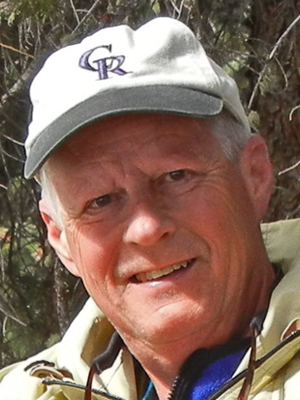
“The desert is a lot like beer; it’s an acquired taste.” That’s what a friend of mine told me some years ago. I think he may have been onto something. However, these northern cold desert areas of Wyoming are neither a smooth lager nor an easy-drinking American pilsner. Rather, I seem to be continually thinking of a bitter pale ale as I sit on the cracked gray clay sipping warm water from my water bottle. It is a hot day in early June and I am in the middle of the Honeycombs wildlands in Wyoming’s Big Horn Basin. Although I am only 20 miles from the city of Worland, I feel I could be a thousand miles or a hundred and fifty years away from any western population center.
By Jeri Lewis Edwards
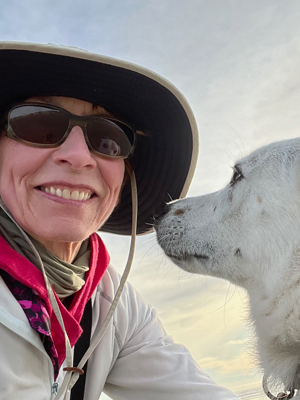
How could you have known we would
become utterly, inexplicably lost
without that misplaced map?
And that razor cut trail cloaked in dust,
talus, edged felsite, gneissic-banded rubble.
We witnessed those tumbled stones—
they weren’t cairns from your past,
no markers to guide us.
By Frank Keim

Thinking back...
deep
into the heart of these arctic mountains
known today as the Brooks Range,
I remember
the long windy solitude of the valley,
where gray river cobbles collide
with a braided maze of ancient caribou trails,
– Online reviewer bringing their own brand of shade
to the Oregon Badlands Wilderness
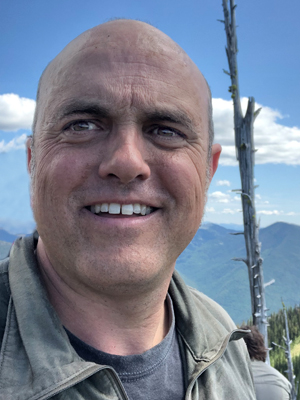 I hope the following paints a sunnier portrait of the desert.
I hope the following paints a sunnier portrait of the desert.
The Oregon Badlands Wilderness is a 29,000-acre protected area in the high desert administered by the Bureau of Land Management. The desert’s hardy flora roots itself into the land’s shield volcano, which came into being 80,000 years ago when a lava tube running underneath the ground sprung a leak. Lava oozing north, south, east, and west created the badlands.
The sandy, light colored soil that the raccoon prints are imbedded in comes from thousands of years of eroded lava. At various locations in the badlands, there are elevated volcanic rock formations—ships in the sagebrush sea—that allow for unobstructed views of the Cascade volcanoes to the west and the vast desert to the east.
By Jim Peek
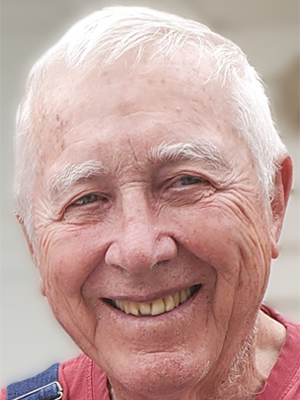
I’ve seen quite a few cougars over the years, but the biggest one was in the Selway-Bitterroot Wilderness in Idaho.
My way to cool off from the spring semester at the University of Idaho was to borrow Maurice Hornocker’s two pack mules, saddle my horse, and have the agriculture school’s stock truckers take me to Selway Falls and drop me off. I would then ride the 50 or so miles to White Cap Creek. It was May, when the shrubs were in bloom and nobody else was in there.
I usually checked with the Forest Service about whether the trail was avalanched shut or if it was open. When they invariably told me it was impassible, I always went regardless and never dropped a pack.
By Kevin Proescholdt
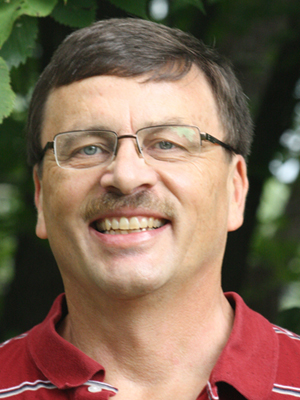
This fall, my wife Jean and I visited Theodore Roosevelt National Park in western North Dakota. Though we had driven through the area on I-94 in the past, we had never explored the park, nor visited its designated Wildernesses. We had a wonderful time visiting and hiking in the park, and exploring the Theodore Roosevelt Wilderness.
We found that the National Park Service (NPS) itself does very little to highlight the Theodore Roosevelt Wilderness within the National Park, and it was very difficult to find information about the Wilderness from the NPS. That needs to change, but that situation also unfortunately reflects the NPS’s generally lackadaisical and cavalier attitude toward Wilderness across the nation.
By Shane Vlcek
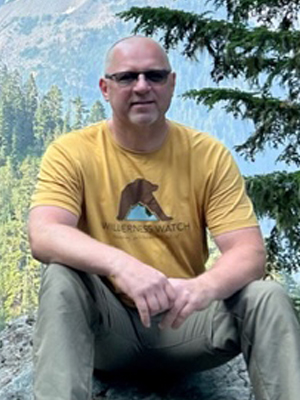
I spent most of my adulthood in the western states of Idaho, Montana, and Oregon. Experiencing the backcountry was always something I looked forward to. But finding the opportunity and time to explore those sacred Wilderness places where true freedom is no longer in front of the next step or beyond the next ridgeline had always been a chance experience rather than a lifestyle.
by Harriet Greene
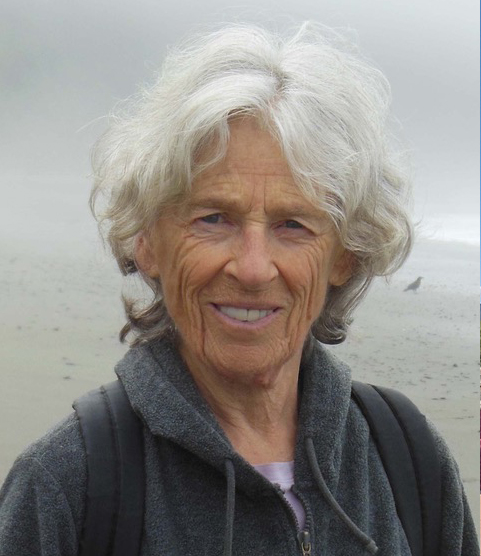 My daughter and I drove south towards the turnoff, then seventeen miles on gravel to the trailhead. A pack trip was leaving and the wrangler, spitting a wad of tobacco, told us about “one of the best campsites” where we were headed. The trail climbed through a grove of aspens, stayed high on a sage-covered slope above Upper New Fork Lake, and we crossed into the Bridger Wilderness at 3.4 miles. Ah-h-h!
My daughter and I drove south towards the turnoff, then seventeen miles on gravel to the trailhead. A pack trip was leaving and the wrangler, spitting a wad of tobacco, told us about “one of the best campsites” where we were headed. The trail climbed through a grove of aspens, stayed high on a sage-covered slope above Upper New Fork Lake, and we crossed into the Bridger Wilderness at 3.4 miles. Ah-h-h!
After a seven-mile climb into the steep New Fork Canyon and two tricky river crossings, we ascended to a meadow, exhausted and desperate for a site. Fording the river again to a heavily-used area with a lot of horse manure, probably the spot the wrangler had mentioned, we moved far enough away, pitched our tent and cooked dinner just as it started to drizzle.
By Brett Haverstick
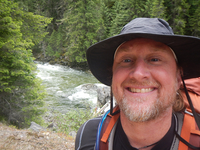 I was off work and at the trailhead by 6:00 p.m. I estimated that I had about three-and-a-half hours of daylight to hike the eight miles to Bass Lake on the Montana side of the Selway-Bitterroot Wilderness. I wasn’t in the best backpacking shape, but I figured I could still knock out the miles and the 3,500 ft. elevation gain before it was completely dark. I hadn’t backpacked into the Selway—Bitterroot, my favorite Wilderness, since last autumn.
I was off work and at the trailhead by 6:00 p.m. I estimated that I had about three-and-a-half hours of daylight to hike the eight miles to Bass Lake on the Montana side of the Selway-Bitterroot Wilderness. I wasn’t in the best backpacking shape, but I figured I could still knock out the miles and the 3,500 ft. elevation gain before it was completely dark. I hadn’t backpacked into the Selway—Bitterroot, my favorite Wilderness, since last autumn.
By Phil Knight
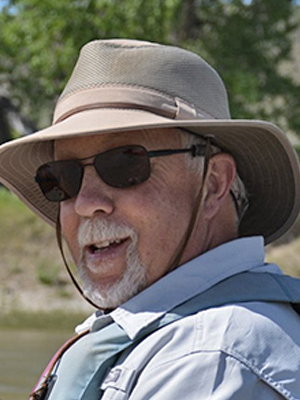 What good is designated wilderness? Are the Lee Metcalf or the Absaroka Beartooth “wasted lands” because people can’t just go do whatever they want there?
What good is designated wilderness? Are the Lee Metcalf or the Absaroka Beartooth “wasted lands” because people can’t just go do whatever they want there?
I am currently (temporarily) disabled from a fall and cannot walk unassisted. There will be no wilderness trips for me this summer.
By Michael Lipsky
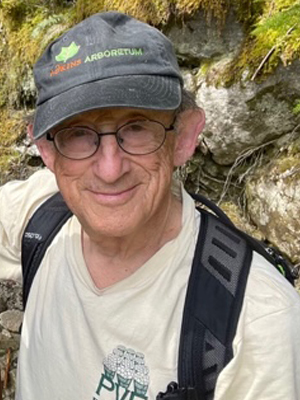 For many years I had wanted to return to the Elysian Fields, an off-trail backcountry area of trackless meadows in the Mount Rainier Wilderness within Mount Rainier National Park. The opportunity arose when I joined my son, Josh, and three of his friends on a backpacking trip a few years after they graduated from college.
For many years I had wanted to return to the Elysian Fields, an off-trail backcountry area of trackless meadows in the Mount Rainier Wilderness within Mount Rainier National Park. The opportunity arose when I joined my son, Josh, and three of his friends on a backpacking trip a few years after they graduated from college.
By Frank Keim

We’re camped on the Hulahula River,
and after dinner
on a balmy night
five of us marched like caribou
single file
upriver
along a narrow animal trail
to a tall pingo
sculpted long ago from ancient ice melt,
By Brett Haverstick
 Marty met us at the Bear Creek Trailhead at 9 a.m. We left my car in the lot, and she shuttled us over to Blodgett. Tim and I unloaded our packs, and went over our itinerary one last time. We expected to be back at Bear Creek in 5-6 days and then drive my car home.
Marty met us at the Bear Creek Trailhead at 9 a.m. We left my car in the lot, and she shuttled us over to Blodgett. Tim and I unloaded our packs, and went over our itinerary one last time. We expected to be back at Bear Creek in 5-6 days and then drive my car home.
By Brett Haverstick
 I arrived at the Corn Creek trailhead about 4 p.m. in the afternoon. The sun was still hot, and the river canyon felt like an oven, particularly for May. After a few hours of hiking along the trail, I reached Horse Creek, a small tributary of the Salmon River. The creek was loud and brimming bank-to-bank with spring runoff. I decided to cross the creek using the foot-bridge—it was the wrong time of the year to wade into the water and attempt a stream crossing!
I arrived at the Corn Creek trailhead about 4 p.m. in the afternoon. The sun was still hot, and the river canyon felt like an oven, particularly for May. After a few hours of hiking along the trail, I reached Horse Creek, a small tributary of the Salmon River. The creek was loud and brimming bank-to-bank with spring runoff. I decided to cross the creek using the foot-bridge—it was the wrong time of the year to wade into the water and attempt a stream crossing!
by Harriet Greene
 Wind River Range, Bridger Wilderness, Pinedale, Wyoming:
Wind River Range, Bridger Wilderness, Pinedale, Wyoming: by Suez Jacobson
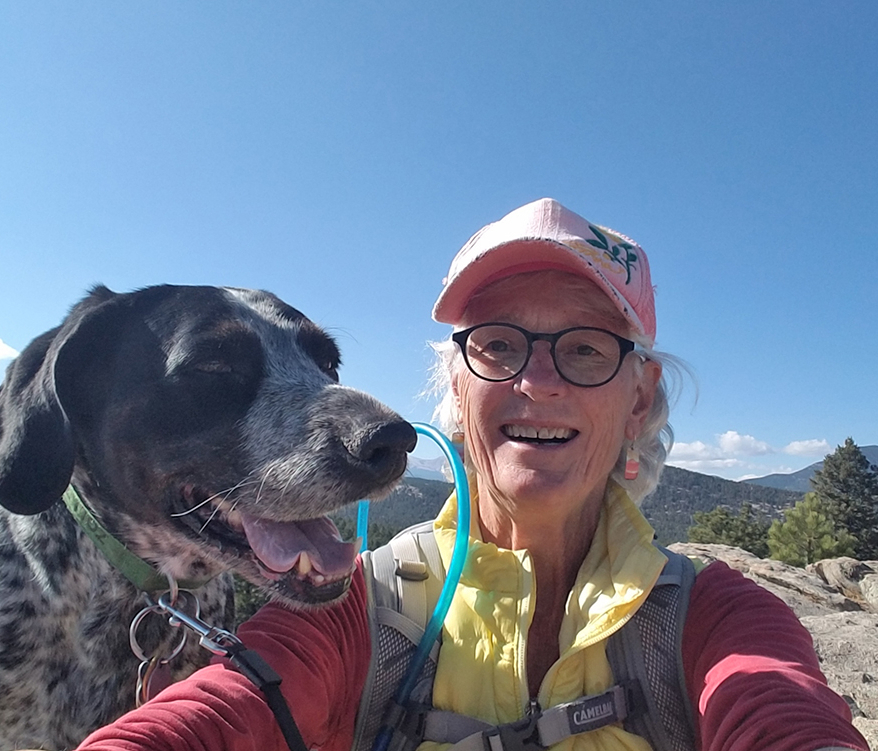 A long wait – almost 50 years – to learn
A long wait – almost 50 years – to learn
How deeply and completely
The wild magic of the Boundary Waters
Could burrow.
A self-identified mountain girl
Lost to still, flat black water
Contained by granite outcroppings
Layered in midnight green pines
Topped with iridescent spring birches.
by Howie Wolke
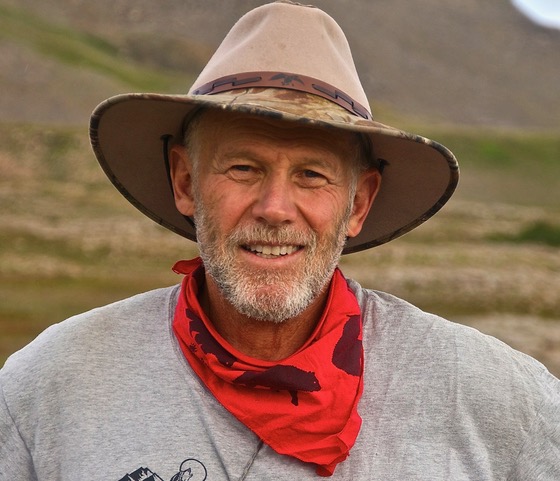 In late October, Marilyn and I headed south for a 226 mile 21-day float trip down the Grand Canyon of the Colorado River. There were four of us, in two rafts. For most of the 20,000 or so folks who annually float the Colorado, the scenery and numerous challenging rapids are big attractions. But for Marilyn and me, the big draw was the vast desert wilderness that the river punctuates. Although I hadn’t rowed challenging whitewater in nearly two decades, we all made it through the rapids upright, though I had a few close calls.
In late October, Marilyn and I headed south for a 226 mile 21-day float trip down the Grand Canyon of the Colorado River. There were four of us, in two rafts. For most of the 20,000 or so folks who annually float the Colorado, the scenery and numerous challenging rapids are big attractions. But for Marilyn and me, the big draw was the vast desert wilderness that the river punctuates. Although I hadn’t rowed challenging whitewater in nearly two decades, we all made it through the rapids upright, though I had a few close calls.
Wilderness. The Big Outside (Foreman and Wolke, Revised Edition 1992) inventoried the Grand Canyon wildland complex at 2,700,000 acres of roadless country in one unbroken block, the fourth largest such area in the lower 48 states. The 2.7 million acre wildland includes over a million roadless acres within Grand Canyon National Park, but also a number of contiguous national forest and BLM roadless areas and designated wildernesses.
By Paul Willis
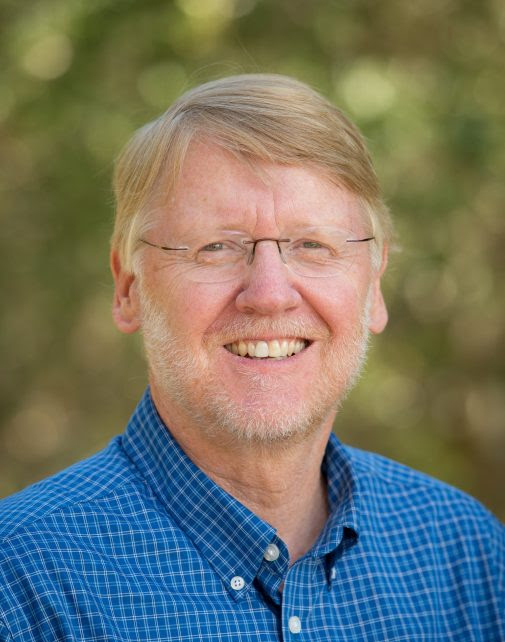 There is an art of conducting oneself in the lower regions by the memory of what one saw higher up. —René Daumal, Mount Analogue
There is an art of conducting oneself in the lower regions by the memory of what one saw higher up. —René Daumal, Mount Analogue
Sitting here, high on the shoulder of a peak in the Ansel Adams Wilderness, I am looking down at a grassy swale where I startled a herd of eleven mule deer. From this height they are now too small to be seen, but they kept their ground as I detoured around them on scree and talus, not wanting to disturb their pasture. And looking down in the other direction, a blood-red canyon drops away to the round expanse of an alkali lake, from this vantage point its two or three islands an obvious continuation of a series of craters to the south. And, looking up, the summit of the mountain I'm on rises gently, inviting me to visit before thunderheads build and explode, just as they did yesterday on my way down another summit. Such a relief to be lost in sky, no other purpose beyond placing the next boot, the next hoof.
By Ned Vasquez
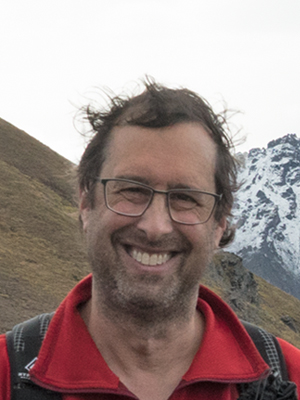 For many years, dating back even to my childhood, I have dreamed of spending time in the Alaskan wilderness. In August, 2019 this dream became a reality when my middle daughter and I spent 9 days rafting the Kongakut River in the Arctic National Wildlife Refuge.
For many years, dating back even to my childhood, I have dreamed of spending time in the Alaskan wilderness. In August, 2019 this dream became a reality when my middle daughter and I spent 9 days rafting the Kongakut River in the Arctic National Wildlife Refuge.
Our trip was organized through a guiding company based in Fairbanks. Our group consisted of 6 clients and 2 guides and we were fortunate to have a highly compatible group. The guiding company did an excellent job of orienting us to the nature of the Arctic National Wildlife Refuge and ensured that we were as minimally impactful as possible.
By Frank Keim

Old days drift slowly into new days
and the white eye of the Arctic sun rolls
bright across the night,
as we trek
south
up the Hulahula River,
named more than a century ago
by Hawaiian whalers stranded
on an ocean cold and frozen
before its time.
By Cathy Brandt

Due to life-long arthritis and now a bit of the "A" word (age), I can't hike very deep into wilderness areas. However, when I do I'm looking to experience solitude—to get away from masses of people and their litter, cell phones, dogs barking, and aircraft noise. It's very sad that some people have never been away from these distractions and never know what they're missing.
We all deserve wild solitude and I feel human beings actually need it. In the wild all of our senses experience fresh cues, and our lungs take in more clean air and oxygen. For some of us, it can also be a very emotional experience. A few tears may be shed at the sight of a wondrous peak, or a gurgling moss-lined creek. Wild places are my church, and many would agree with me on that!
By Scott Crain
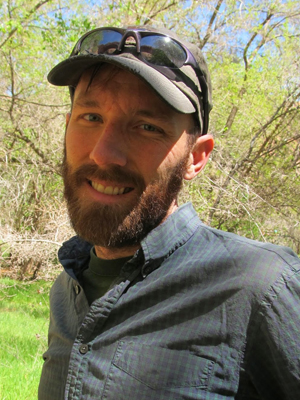
The Juniper Dunes Wilderness area is a 7000-acre part of the National Wilderness Preservation System, located in southeastern Washington State. It lies just a few miles north of what used to be a quiet part of the state, now exploding with population and development. The Hanford Nuclear Reservation lies a few miles to the southwest, one of the most polluted nuclear waste sites in the country. Just outside the barbed wire fence that surrounds Juniper Dunes lies an off-road vehicle area promoted by the Bureau of Land Management for ORVs and other motorized activities.
I was born and raised a few miles south in Pasco. When I was a kid, the Dunes, as we called them, were a place to go target shooting, driving four wheelers, and doing all sorts of other things that our parents didn't want to know about. I've moved on, but those activities continue unabated right up to the wilderness boundary.
By Kevin Proescholdt

In August, my family and I enjoyed our second canoe trip of the summer in the Boundary Waters Canoe Area Wilderness (BWCAW) of northeastern Minnesota. The 1.1 million-acre BWCAW is a lakeland wilderness with over 1,000 lakes connected by rivers, streams and portage trails. It is part of Superior National Forest and is one of the most visited (if not the most visited) Wilderness in the National Wilderness Preservation System.
We enjoyed five days of paddling, portaging, camping, swimming, fishing, and laughing. But we did have to contend with strong winds almost the entire trip, including becoming windbound overnight at a point of land where the strong west winds howled unimpeded along many miles of open lake.
By Jessica Howell-Edwards
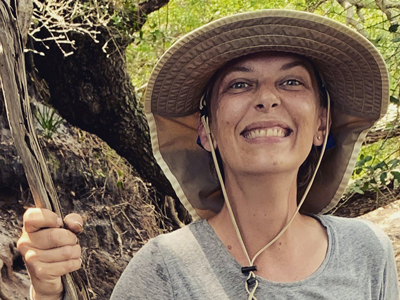 Cumberland Island Wilderness is part of the Cumberland Island National Seashore in southern Georgia, administered by the National Park Service (NPS). It was previously sanctioned as a UN Biosphere Reserve, and is located just miles from Kings Bay Naval Base and also nuclear warhead storage.
Cumberland Island Wilderness is part of the Cumberland Island National Seashore in southern Georgia, administered by the National Park Service (NPS). It was previously sanctioned as a UN Biosphere Reserve, and is located just miles from Kings Bay Naval Base and also nuclear warhead storage.
I firmly believe that all Wilderness experiences have the potential to be transformative in our lives, but Cumberland Island Wilderness offers a complex variation of ecosystems that only a southeastern barrier island can: towering sand dunes, freshwater lakes, maritime forest, salt marshes, and deserted beaches.
By René Voss
 So now I know why people came up with the idea of aerial spraying DDT to kill pesky bugs ... like the thousands of mosquitoes that attacked me over the summer solstice in the Emigrant Wilderness. Relentless beasts!
So now I know why people came up with the idea of aerial spraying DDT to kill pesky bugs ... like the thousands of mosquitoes that attacked me over the summer solstice in the Emigrant Wilderness. Relentless beasts!
As I was walking out of the Wilderness I struck an interesting conversation with a fellow hiker who was local and had been visiting the Emigrant Wilderness for over 50 years. He said he had seen many changes since he first started hiking there as a kid. His name was Larry. I know this because he was wearing a "Larry" belt buckle ... local for sure.
By Brett Haverstick
 I just returned from a recent backpacking trip into one of our nation’s first Wilderness areas, the Selway-Bitterroot Wilderness of north central Idaho and western Montana. It was a typical June trip in the Northern Rockies with thunder, lightning, rain, hail, clouds, and sun. The forests were greening up, the rivers and creeks flowing at a strong clip, and the birds were both active in flight and song. My personal trip diary reflected that I observed bald eagles, osprey, red-tailed hawks, ravens, pileated woodpeckers, hummingbirds, western tanagers, Canada geese, common mergansers, and more.
I just returned from a recent backpacking trip into one of our nation’s first Wilderness areas, the Selway-Bitterroot Wilderness of north central Idaho and western Montana. It was a typical June trip in the Northern Rockies with thunder, lightning, rain, hail, clouds, and sun. The forests were greening up, the rivers and creeks flowing at a strong clip, and the birds were both active in flight and song. My personal trip diary reflected that I observed bald eagles, osprey, red-tailed hawks, ravens, pileated woodpeckers, hummingbirds, western tanagers, Canada geese, common mergansers, and more.
Contact Us
Wilderness Watch
P.O. Box 9175
Missoula, MT 59807
P: 406.542.2048
Press Inquiries: 406.542.2048 x2
E: wild@wildernesswatch.org
Minneapolis, MN Office
2833 43rd Avenue South
Minneapolis, MN 55406
P: 612.201.9266
Moscow, ID Office
P.O. Box 9765
Moscow, ID 83843
